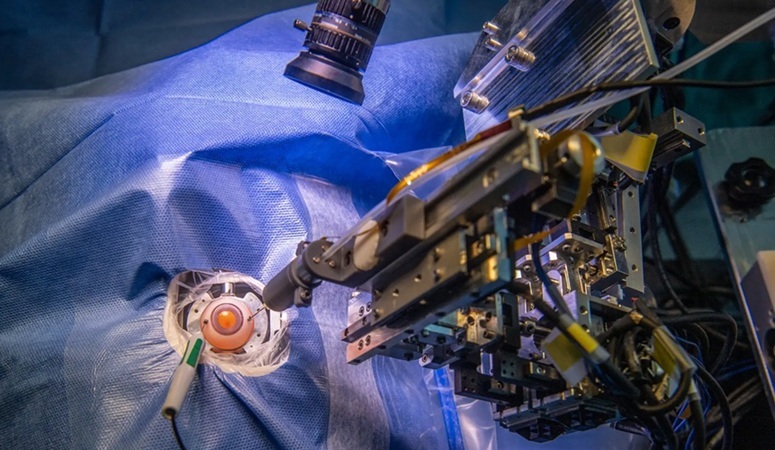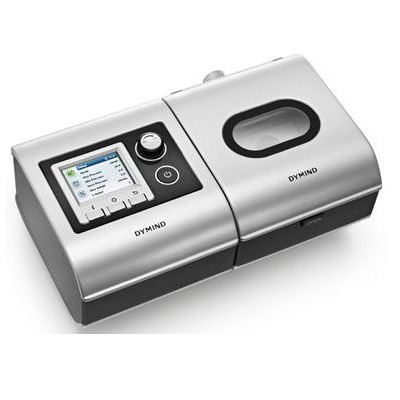Tired Night-Shift Physicians Less Likely to Prescribe Painkiller for Patients
|
By HospiMedica International staff writers Posted on 30 Jun 2022 |

A new study has revealed that physicians are far less likely to prescribe painkillers at night than during the day, indicating that the tiredness experienced by doctors is actually hurting patients.
In the study, researchers from the Hebrew University of Jerusalem (Jerusalem, Israel) and Hadassah Medical Center (Jerusalem, Israel) examined 13,482 discharge letters of patients in Israeli and American emergency rooms (ER) between 2013 and 2020. The researchers found that patients with similar age and medical conditions who visited the ER in the nighttime were 20 to 30% less likely to be given a prescription for painkillers as compared to patients visiting the ER in the daytime. The bias was found to be significant even after adjusting for the patients’ reported level of pain, patient and physician’s demographics, the type of complaint and other factors.
Moreover the study found that in a large number of cases, the doctors did not meet the recommendations of the World Health Organization (WHO) by failing to prescribe painkillers. These findings suggest that patient care is harmed when doctors are tired and experiencing increased stress during night shifts, according to the researchers.
“We were very surprised by what we discovered and that it’s not been documented until now,” Dr. Alex Gileles-Hillel, one of the authors of the study, told The Times of Israel. “The finding is clear - if you’d go home during the day with a painkiller prescription, you’re far less likely to get one at night. Our suggestion is that empathy is lower at night time, and doctors’ perception of the pain of others is actually impaired at night, when they are tired.”
“Our takeaway is that night shift work is an important and previously unrecognized source of bias in pain management, likely stemming from impaired perception of pain. Even medical experts, who strive to provide the best care for their patients, are susceptible to the effects of a night shift,” Dr. Anat Perry, another member of the research team, told The Times of Israel.
Related Links:
Hebrew University of Jerusalem
Hadassah Medical Center
Latest Critical Care News
- Ingestible Capsule Monitors Intestinal Inflammation
- Wireless Implantable Sensor Enables Continuous Endoleak Monitoring
- Pulse Oximeter Index Offers Non-Invasive Guides for Fluid Therapy
- Wearable Patch for Early Skin Cancer Detection to Reduce Unnecessary Biopsies
- 'Universal' Kidney to Match Any Blood Type
- Light-Based Technology to Measure Brain Blood Flow Could Diagnose Stroke and TBI
- AI Heart Attack Risk Assessment Tool Outperforms Existing Methods
- Smartphone Imaging System Enables Early Oral Cancer Detection
- Swallowable Pill-Sized Bioprinter Treats GI Tract Injuries

- Personalized Brain “Pacemakers” Could Help Patients with Hard-To-Treat Epilepsy
- Microscopic DNA Flower Robots to Enable Precision Medicine Delivery
- Origami Robots to Deliver Medicine Less Invasively and More Effectively
- Improved Cough-Detection Technology Aids Health Monitoring
- AI Identifies Children in ER Likely to Develop Sepsis Within 48 Hours
- New Radiofrequency Therapy Slows Glioblastoma Growth
- Battery-Free Wireless Multi-Sensing Platform Revolutionizes Pressure Injury Detection
Channels
Surgical Techniques
view channel
Robotic Assistant Delivers Ultra-Precision Injections with Rapid Setup Times
Age-related macular degeneration (AMD) is a leading cause of blindness worldwide, affecting nearly 200 million people, a figure expected to rise to 280 million by 2040. Current treatment involves doctors... Read more
Minimally Invasive Endoscopic Surgery Improves Severe Stroke Outcomes
Intracerebral hemorrhage, a type of stroke caused by bleeding deep within the brain, remains one of the most challenging neurological emergencies to treat. Accounting for about 15% of all strokes, it carries... Read morePatient Care
view channel
Revolutionary Automatic IV-Line Flushing Device to Enhance Infusion Care
More than 80% of in-hospital patients receive intravenous (IV) therapy. Every dose of IV medicine delivered in a small volume (<250 mL) infusion bag should be followed by subsequent flushing to ensure... Read more
VR Training Tool Combats Contamination of Portable Medical Equipment
Healthcare-associated infections (HAIs) impact one in every 31 patients, cause nearly 100,000 deaths each year, and cost USD 28.4 billion in direct medical expenses. Notably, up to 75% of these infections... Read more
Portable Biosensor Platform to Reduce Hospital-Acquired Infections
Approximately 4 million patients in the European Union acquire healthcare-associated infections (HAIs) or nosocomial infections each year, with around 37,000 deaths directly resulting from these infections,... Read moreFirst-Of-Its-Kind Portable Germicidal Light Technology Disinfects High-Touch Clinical Surfaces in Seconds
Reducing healthcare-acquired infections (HAIs) remains a pressing issue within global healthcare systems. In the United States alone, 1.7 million patients contract HAIs annually, leading to approximately... Read moreHealth IT
view channel
Printable Molecule-Selective Nanoparticles Enable Mass Production of Wearable Biosensors
The future of medicine is likely to focus on the personalization of healthcare—understanding exactly what an individual requires and delivering the appropriate combination of nutrients, metabolites, and... Read moreBusiness
view channel
Philips and Masimo Partner to Advance Patient Monitoring Measurement Technologies
Royal Philips (Amsterdam, Netherlands) and Masimo (Irvine, California, USA) have renewed their multi-year strategic collaboration, combining Philips’ expertise in patient monitoring with Masimo’s noninvasive... Read more
B. Braun Acquires Digital Microsurgery Company True Digital Surgery
The high-end microsurgery market in neurosurgery, spine, and ENT is undergoing a significant transformation. Traditional analog microscopes are giving way to digital exoscopes, which provide improved visualization,... Read more
CMEF 2025 to Promote Holistic and High-Quality Development of Medical and Health Industry
The 92nd China International Medical Equipment Fair (CMEF 2025) Autumn Exhibition is scheduled to be held from September 26 to 29 at the China Import and Export Fair Complex (Canton Fair Complex) in Guangzhou.... Read more














